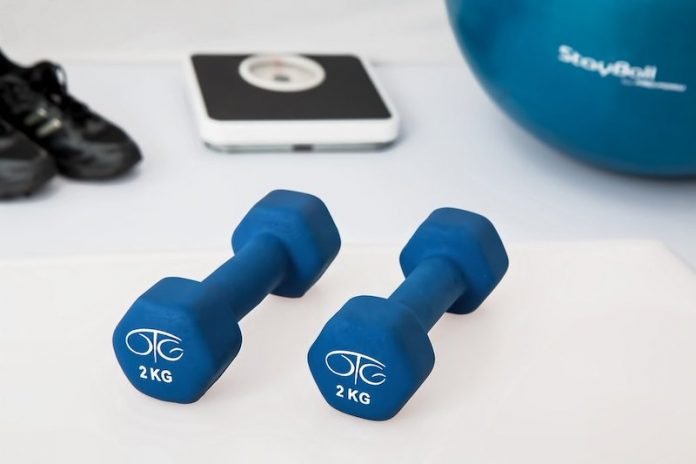
A recent study at the University of British Columbia found that strength training can be an effective way for older people to stay healthy while at home during the COVID-19.
They found that strength training with free-weights that progresses in intensity is effective in combating declining health often observed with adult aging.
The study is published in The Journal of Frailty & Aging. The lead author is UBCO professor Jenn Jakobi.
Previous research has shown that inactivity and social isolation are key contributors to age-related frailty.
While social isolation is a complex challenge these days, there is absolutely some work we can do on enhancing exercise at home.
The team adds that physical movement and exercise, inclusive of weight training, can be readily adapted for the home but advises that anyone looking to start a new exercise program should consult with their physician first.
They define frailty as a reduced function and health in older adults. Features include unintentional weight loss, slow walking speed, muscle weakness, fatigue, and low activity levels.
If left unchecked this may lead to declines in health and functional independence which might require longer-term care.
In the study, the team wanted to explore whether progressive-resistance exercises can be effective at altering the path to this vulnerability.
After an initial screening of 53 older adults, they evaluated 21 pre-frail women over the age of 65, divided into two groups.
One group participated in a progressively intense free weight exercise program three-times-a-week for 12 weeks. Their exercises mimicked movements of normal life, and which may become difficult for some as they age.
The other group simply maintained their normal routines.
Measurements of muscle strength and performance were compared between the groups after the 12-week session.
The team found not only did the exercise group improve their muscle performance and become less frail, but they also did so without injury.
The exercise group improved in all measures including walking speed, grip strength, and sit-to-stand time. Also, these changes were seen as early as nine weeks into the program.
Their findings dispel the myth of strength training being unsuitable for pre-frail older adults.
Although the research into heavy resistance training is novel and in its early phases, this style of exercise is showing great promise.
None of the exercise participants opted-out of the program or reported negative events and all improved in functional movement.
To help those interested in using this new research in their home during this period of physical distancing, the team has created an exercise worksheet and other at-home resources that highlight the beginning phases of these progressive movements.
Copyright © 2020 Knowridge Science Report. All rights reserved.



